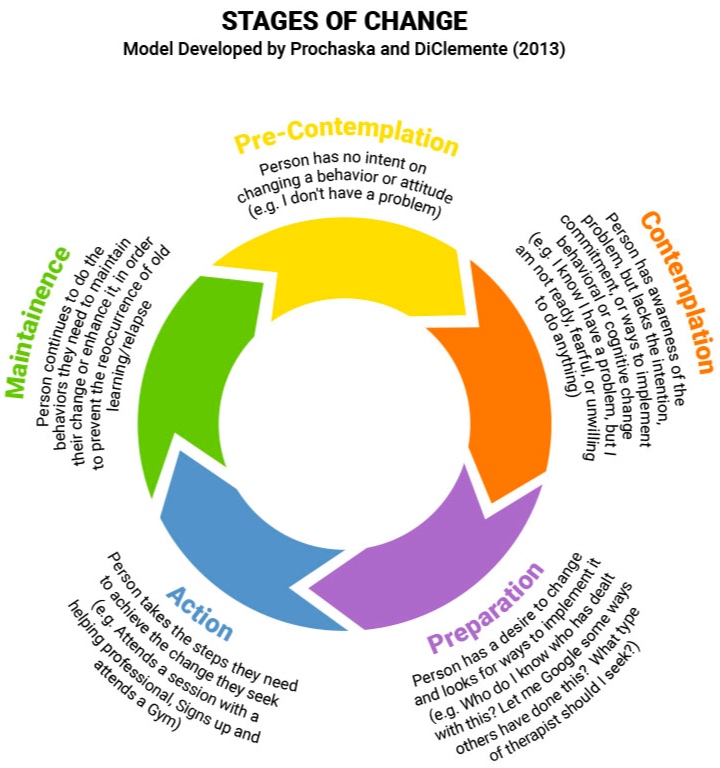In this article, we will explore what Motivational Therapy is, who can benefit from it, how it works, and some of the key techniques used in this type of therapy.
Contents
Understanding Motivational Therapy
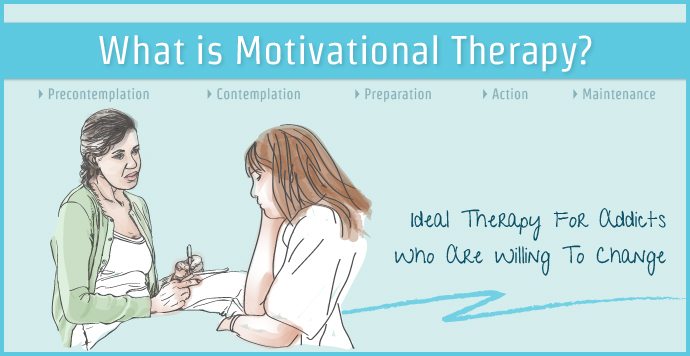
Motivational Therapy is a form of psychotherapy that helps people to explore and resolve the motivational issues that are keeping them from living satisfying lives. It was first developed in the early 1950s by psychologist Abraham Maslow. He believed that people are motivated to satisfy their basic needs. Including the need for love, belonging, safety, and self-esteem.
Theory Behind Motivational Therapy
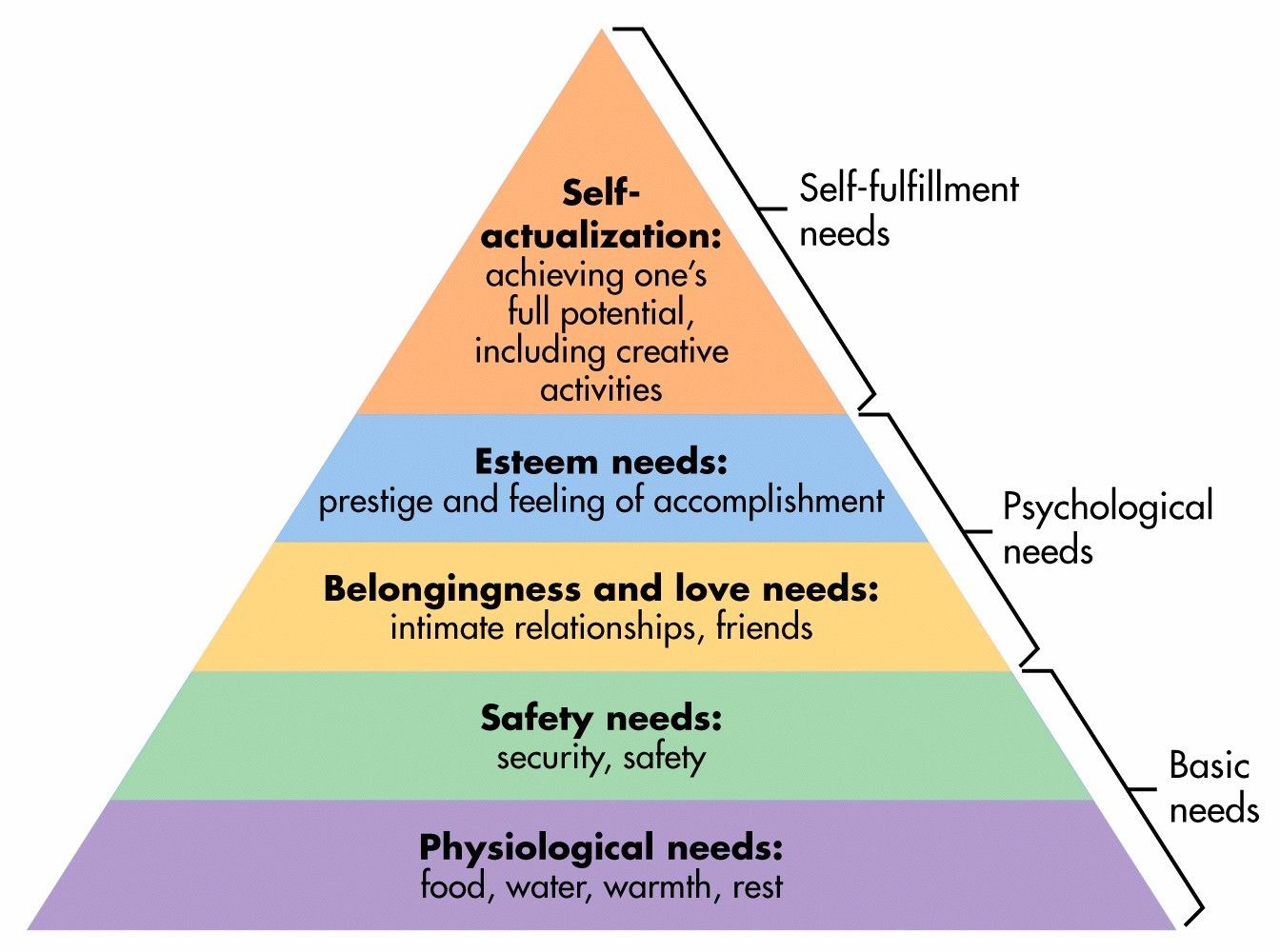
Maslow’s Hierarchy of Needs has been very influential in the field of Motivational Therapy. It provides a framework for understanding why people are motivated to do what they do. It also helps therapists to understand what might be keeping their clients from achieving their goals.
Maslow’s Hierarchy of Needs
Abraham Maslow’s Hierarchy of Needs is a theory that suggests that people are motivated to satisfy their basic needs. In order from most to least important, these needs are:
- Physiological needs (for food, water, air, shelter, sleep, etc.)
- Safety and security needs (for physical safety and financial security)
- Love and belongingness needs (for relationships, friendship, family, etc.)
- Esteem needs (for self-esteem, achievement, respect from others, etc.)
- Self-actualization needs (for personal growth and fulfillment)
Maslow believed that people must satisfy their lower-level needs before they can move on to satisfying their higher-level needs. For example, a hungry person is not going to be focused on anything else until they satisfy their need for food. Once their basic needs are met, they can then focus on meeting their higher-level needs.
Stages of Change
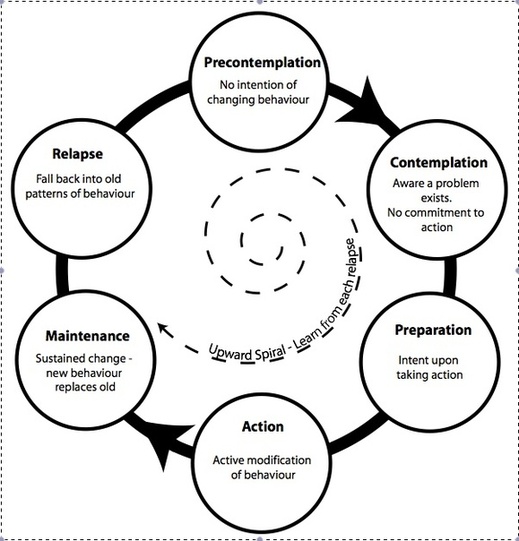
The Transtheoretical Model of Change, also known as the Stages of Change model, is another theory that is often used in Motivational Therapy.
This model suggests that people go through different stages when they are trying to change behavior.
These stages are:
- Precontemplation (not yet considering change)
- Contemplation (considering change but not ready to take action)
- Preparation (taking small steps towards change)
- Action (changing behavior and working towards goals)
- Maintenance (working to keep up the new behavior)
- Relapse (returning to old habits)
The Transtheoretical Model of Change suggests that people must go through the stages of change in order to make lasting changes.
It is often used in Motivational Therapy to help clients understand where they are at in their journey and what they need to do next.
History, And Development
Motivational Therapy was first developed in the early 1950s by psychologist Abraham Maslow. He is best known for his work on Maslow’s Hierarchy of Needs. Maslow believed that people are motivated to satisfy their basic needs. Including the need for love, belonging, safety, and self-esteem.
In the early 1960s, psychologist Carl Rogers developed a form of therapy called Person-Centered Therapy. This type of therapy also focused on helping people to achieve their full potential.
Person-Centered Therapy is very similar to Motivational Therapy. In fact, many experts consider Motivational Therapy to be a form of Person-Centered Therapy. Over the years, Motivational Therapy has evolved and been influenced by many different theories and approaches.
But at its core, Motivational Therapy is still focused on helping people to identify and achieve their goals.
Unfolding Motivational Therapy

Who Can It Help
Motivational Therapy can help people who are struggling with a variety of issues. For instance, some of the most common problems that Motivational Therapy can help with include:
- Anxiety
- Depression
- Eating disorders
- Substance abuse
- Relationship problems
Motivational Therapy can also help people who are trying to make changes in their lives. For example, someone who wants to quit smoking or lose weight may benefit from Motivational Therapy.
How Does It Work
Motivational Therapy is based on the idea that people are motivated to achieve their goals. The therapist will work with the client to help them identify their goals.
Once people identify their goals, the therapist will help the client to develop a plan for achieving those goals. Furthermore, the therapist may also provide support and guidance along the way.
What To Expect
When you first meet with a Motivational Therapist, they will ask you about your goals.
- They will also ask you about your past experiences with trying to achieve those goals.
- The therapist will then work with you to develop a plan for achieving your goals.
- This plan may involve setting small, achievable goals.
- The therapist will also help you to identify any obstacles that might be standing in your way.
Techniques Used In Motivational Therapy
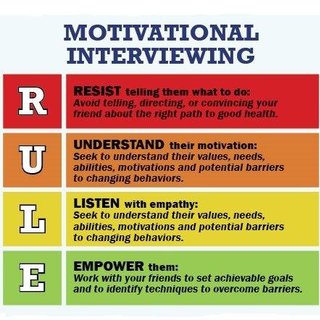
Motivational Therapy uses a variety of techniques to help people achieve their goals.
Some of the most common techniques used in Motivational Therapy include:
- Goal setting: The therapist will help the client to identify their goals.
- Action planning: The therapist will help the client to develop a plan for achieving their goals.
- Motivational interviewing: This technique helps the client explore their motivation for change.
- Problem-solving: The therapist will help the client to identify and solve any problems that might be standing in their way.
- Decision making: The therapist will help the client to make decisions that will help them to achieve their goals.
- Behavioral activation: This technique help the client identify activities that will help them to achieve their goals.
- Cognitive restructuring: This technique helps the client identify and change any negative thoughts or beliefs that might be standing in their way.
Evaluating Motivational Therapy
A number of small-scale studies have been conducted on the effectiveness of this therapy. These studies have generally found that Motivational Therapy is an effective treatment for a variety of issues.
Benefits of Motivational Therapy
There are many benefits of Motivational Therapy. Some of the most common benefits include:
- Improved mental health
- Improved physical health
- Increased self-esteem
- Improved relationships
- Increased sense of accomplishment
Common Concerns, And Limitations
There are some concerns that people have about Motivational Therapy.
- Some people worry that the therapist will be judgmental.
- Others worry that the therapist will try to push their own agenda.
- Still, others worry that the therapy will not be effective.
These are all valid concerns. However, it is important to remember that Motivational Therapy is a confidential process. This means that the therapist will not judge you. And they will not push their own agenda. The therapist’s only goal is to help you achieve your goals.
Why Consider It
If you are struggling to achieve your goals, Motivational Therapy may be a good option for you.
- It can help you to identify the obstacles standing in your way.
- It can also help you to develop a plan for overcoming those obstacles.
Finding a Motivational Therapist

How To Find One
When you are looking for a Motivational Therapist, it is important to find someone who has experience and qualifications.
- You can also look for Motivational Therapists online.
- You may want to ask your friends or family for recommendations.
What To Look Out For
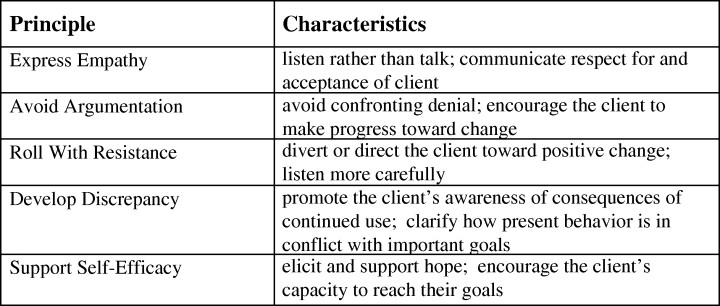
When you are looking for a Motivational Therapist, there are a few things to keep in mind.
- First, you will want to make sure that the therapist has a license and experience.
- You will also want to make sure that the therapist is a good fit for you.
Red Flags To Avoid
When looking for a motivational therapist, there are certain red flags that you should be aware of. These include therapists who:
- use jargon or terms that you don’t understand
- seem judgmental or dismissive of your concerns
- guarantee that they can help you achieve your goals
- try to sell you something (e.g., a book, product, or service)
- refuse to answer questions about their qualifications or experience
- pressure you to decide whether or not to pursue therapy
- seem more interested in talking about themselves than in listening to you
If you encounter any of these red flags, it’s best to look for another therapist. There are plenty of qualified and experienced therapists out there who can help you achieve your goals without pressure or judgment.
Pursuing Training In Motivational Therapy
Motivational therapy is not something that you can simply read about in a book and then start practicing. To be a successful motivational therapist, you need to receive specific training from an accredited institution. There are many different ways to pursue this type of training. But the most important thing is to make sure that you choose a program that is right for you.
Choose Accredited Program
One way to find accredited programs is to search the internet or look in your local phone book. Another way to find an accredited program is to contact your state’s licensing board. The American Psychological Association (APA) can also help you locate an accredited program.
Contact Admission Office
Once you have found an accredited program, the next step is to contact the admissions office and inquire about the requirements for admission. Most programs will require you to have a bachelor’s degree, but some may also require you to have a master’s degree or doctorate.
Complete The Required Coursework
After you get admittance to an accredited program, the next step is to complete the required coursework. This can vary depending on the program, but most programs will require you to take classes on topics such as human development, counseling theories, and research methods.
Complete Supervised Internship
Once you have completed the required coursework, the next step is to complete a supervised internship. This usually lasts for one year and gives you hands-on experience working with clients.
Take The Licensing Exam
After you have completed your internship, the next step is to take the licensing exam. This exam aims to test your knowledge of motivational therapy and to ensure that you are competent to practice.
Find a Job
Once you have passed the licensing exam, the next step is to find a job. There are many different ways to find a job as a motivational therapist. You can search the internet, look in your local phone book, or contact your state’s licensing board.
NOTE: We invite you to list yourself on Therapy Mantra’s Motivational Therapist Directory.
Hearing From Experts
When it comes to learning more about motivational therapy and whether or not it could be helpful for you, it can be extremely beneficial to hear from experts in the field. These are individuals who have completed extensive training in this therapy and who have worked with clients before. They can provide you with first-hand accounts of how effective motivational therapy can be and what you can expect if you decide to pursue it.
Additionally, experts in the field of motivational therapy can also offer valuable insights into how the therapy works and what techniques are used. This can be incredibly helpful if you’re considering pursuing motivational therapy but want to know more about what it entails. By hearing from experts, you can get a well-rounded understanding of motivational therapy and decide if it’s right for you.
Experts’ Take
I had the privilege of interviewing Aheesha Chopra, Certified Psychologist & Life Coach at Therapy Mantra about her experience in the field of motivational therapy. Aheesha has worked extensively with clients in both individual and group settings.
When asked about her motivation for becoming a therapist, Aheesha said “I have always been interested in helping people reach their full potential. I want to help people overcome obstacles and achieve their goals.”
Aheesha went on to say that she believes motivational therapy is an effective treatment for a wide range of issues, including depression, anxiety, substance abuse, and eating disorders. “I have seen firsthand how motivational therapy can help people make positive changes in their lives,” she said.
“Motivational therapy is a type of counseling that is designed to help people overcome obstacles and achieve their goals. The therapist works with the client to identify their goals and then develops a plan to help them achieve those goals. Motivational therapy can be used to help people with a wide variety of issues, such as addiction, weight loss, and career development.” – Dr. Kara Prennace, MA, LMFT
Case Study
To get a better understanding of how this therapy can help, it can be helpful to look at a case study. One case study that is often cited when discussing the benefits of motivational therapy is that of Bill Wilson.
Bill Wilson was one of the founders of Alcoholics Anonymous and he struggled with alcoholism for much of his life. In 1935, he had a spiritual experience that led him to give up alcohol. However, he soon relapsed and realized that he needed help to stay sober.
Wilson then attended a meeting of Alcoholics Anonymous and heard about the benefits of motivational therapy. After attending several meetings, Wilson decided to pursue motivational therapy himself. He found it incredibly helpful in maintaining his sobriety and eventually went on to help others through Alcoholics Anonymous.
This case study demonstrates the power of motivational therapy in helping people overcome addiction. If you’re struggling with addiction, motivational therapy may be able to help you as well.
Resources

If you have an interest in learning more about motivational therapy from experts in the field, there are a few resources that can be helpful.
- American Psychological Association. On this website, you can find a directory of psychologists who specialize in motivational therapy. This can be a great way to find someone qualified to provide you with therapy.
- Association for Behavioral and Cognitive Therapies. This website also has a directory of therapists who specialize in motivational therapy. In addition, this website provides articles and resources on motivational therapy, which can be a great way to learn more about the therapy.
Conclusion
When it comes to finding out if motivational therapy is right for you, there is no better way than hearing from those who have first-hand experience with the therapy. These experts can provide you with insightful information that you need to have about this therapy. Additionally, these resources can also help you find a qualified therapist in your area. If you’re struggling with addiction, motivational therapy may be able to help you overcome your challenges and lead a sober life.
A Word From Therapy Mantra
Your mental health — Your psychological, emotional, and social well-being — has an impact on every aspect of your life. Positive mental health essentially allows you to effectively deal with life’s everyday challenges.
At TherapyMantra, we have a team of therapists who provide affordable online therapy to assist you with issues such as depression, anxiety, stress, workplace Issues, addiction, relationship, OCD, LGBTQ, and PTSD. You can book a free therapy or download our free Android or iOS app.
